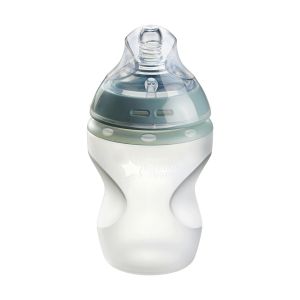
This is a demo store. No orders will be fulfilled.
Subscription orders can be cancelled at anytime. Standard delivery will be charged on each subscription order. Find out more about subscriptions.
They’re easy and fuss free
Your products are automatically sent to you
You save when you sign up for a subscription
You can cancel at any time
As you come towards the end of your pregnancy, you enter the third trimester, aka, the final stretch before your baby arrives. This is a significant and exciting time when lots of changes happen, and it's important to understand these last few months so that you can be informed and ready for birth.
So, let's take a closer look at what happens in the third trimester of pregnancy and answer some of the questions that expectant parents ask about the third trimester.
The third trimester starts when the second trimester ends. It begins at the start of the 28th week of pregnancy.
The third trimester lasts for 12 weeks or three months.
Entering the third trimester means that it's almost time to meet your baby - how exciting!
To help you know what to expect during these last few months, let's run through some of the common third-trimester symptoms that pregnant people experience.
Your bump will continue to grow and change shape throughout your third trimester as your uterus expands up towards your rib cage.
Your belly may shift downwards as your baby 'drops' into position in preparation for birth, but if your baby is breech - with their bottom or legs down and head up - your bump may be wider or slightly top heavy, and by the end of the third trimester, your bump will be at its biggest.
During the third trimester, a baby puts on weight quickly and their body gradually gets more in proportion. Their lungs mature, their eyes open and close, and they can distinguish between light and dark and may startle at loud sounds and sense changes in light. They'll continue to make lots of movements and usually turn into a head-down position by week 36, ready for birth.
Feeling your baby move during the third trimester is one of the best signs that your pregnancy is going well at this late stage.
If you do notice your little one's movements changing and you're at all concerned, it's best to reach out to your doctor and they will be able to carry out any checks - such as a kick count - to confirm that everything's ok.
Many pregnant people understandably find it harder to stay active as their bump grows bigger. During the final stages of pregnancy it's great to carry on gentle exercises like walking and it's also a great time to practice pelvic floor exercises or Kegels to help maintain muscle tone and prevent urinary incontinence.
Swimming can also help soothe aches caused by your growing bump and gives you a few minutes of feeling weightless.
Although it's great to stay active, as with any other stage of pregnancy, it's important to listen to your body during the third trimester and rest whenever you need to. Whenever you can, seize the opportunity to chill and do whatever helps you relax, maybe that's a warm bath, a pregnancy massage, or watching some TV while cradling your bump.
It's normal to have worries as you reach the end of your pregnancy, but certain symptoms shouldn't be ignored.
You should seek advice from your medical care team as soon as possible if you have any of the following during your third trimester:
We asked our Instagram followers what the third trimester felt like for them, and here's what they told us: